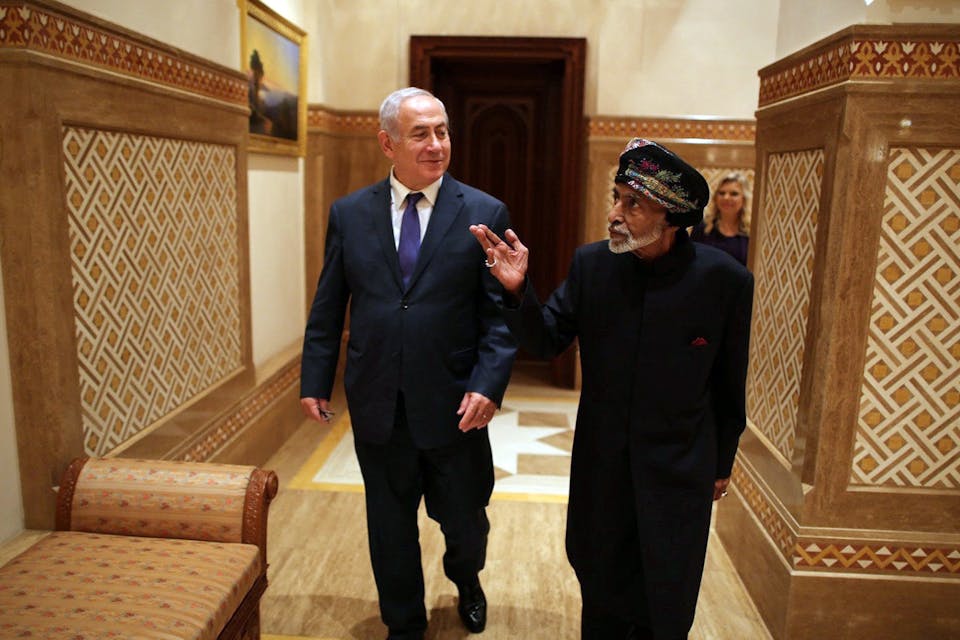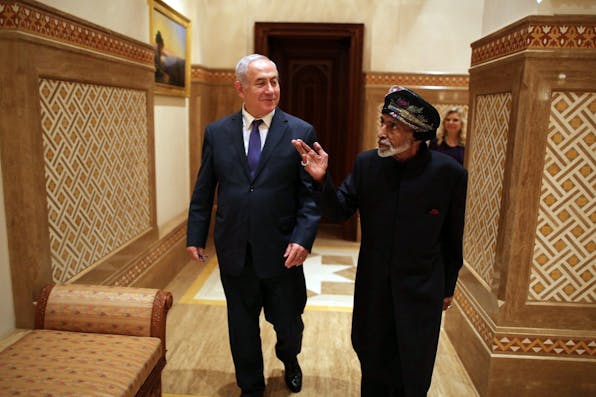
June 24, 2020
Mor: Annexation Would Be a Missed Opportunity
There's a rare geopolitical window open for the Jewish state right now—which means pursuing other interests than those in the West Bank.
The world moves slowly and then occasionally with astonishing celerity. The cause of Jewish self-determination has always had to be sensitive to such movements of history even if the Jews had little recourse to affect them. So it was that in the aftermath of World War I, and the attendant reconfiguration of the multinational empires where most Jews had lived, Zionists were able to maneuver themselves into an internationally recognized mandate for a Jewish national home in Palestine. And so it was with the establishment of the United Nations and the very temporary alignment of interests of the United States and Soviet Union in the Middle East that a legal imprimatur for statehood was advanced with the 1947 UN partition resolution. So it was again after the 1967 Six-Day War that a Security Council resolution was unanimously passed making clear that eventually the Arab states would need to make peace with Israel and could not hope to recover territories lost in war without doing so.
The early 20s of this century see similar dramatic shifts in global politics that have little to do with Israel. But Israel would be reckless not to use what may be a very temporary fluidity to its maximal advantage. The region has been upended by Iranian-Arab tension, which has driven at least some Arab states closer to Israel. The entire Arab state system has barely survived the twin shocks of revolution and counterrevolution following the so-called Arab Spring of 2011. The Middle East as a whole has been of declining importance to global superpowers for at least fifteen years. Israel-Palestinian violence has been almost negligible for the last six years. And the only superpower that still matters in the region is presently ruled by a president who tends to depart from longstanding policy commitments.
This very temporary alignment of the geopolitical stars opens windows of opportunity for Israel, even under a leader so risk-averse as Benjamin Netanyahu. And in some senses, Israel has already availed itself of the new possibilities. Pro-American Gulf monarchies, while not quite out of the closet in their relations with Israel, are now at least openly normalization-curious. Israel has finally achieved American recognition of its capital in Jerusalem as well as of its sovereignty on the Golan Heights. It has also turned what could have been a threatening development—an expanded EU with a bigger foreign-policy portfolio—into an asset by way of cultivating allies in Central Europe as reliable veto players on hostile initiatives (not just countries liberals love to hate like Hungary and Poland, but also Austria, the Czech Republic, Slovakia, Greece, and Cyprus).
Responses to June ’s Essay

June 2020
Wilf: Israel’s Final Border
By Einat Wilf
June 2020
Kontorovich: Israel Should Act Now
By Eugene Kontorovich
June 2020
Hacohen: Israel’s Security Interests in the West Bank
By Gershon Hacohen
June 2020
Mor: Annexation Would Be a Missed Opportunity
By Shany Mor
June 2020
Kramer: The West Bank Was Annexed Once Before. It Ended in Regret.
By Martin Kramer